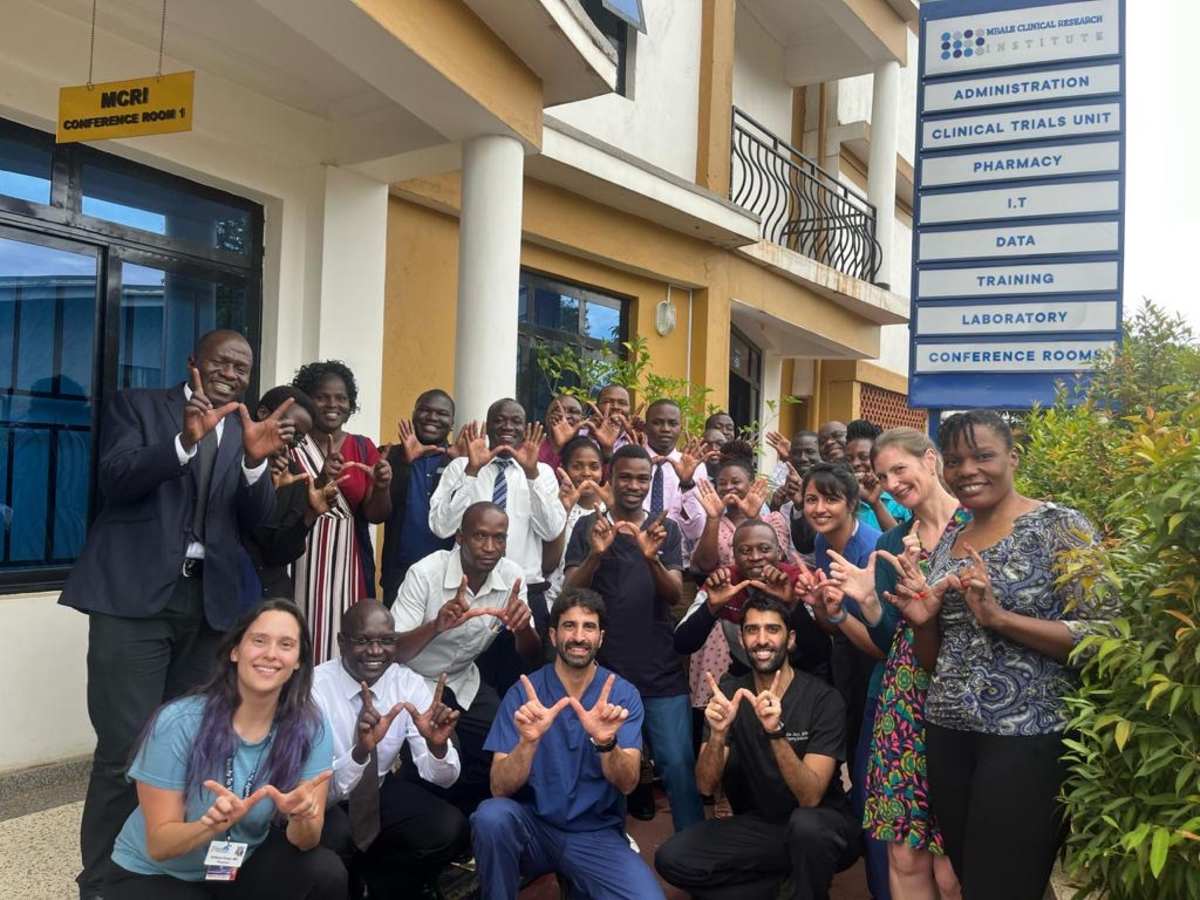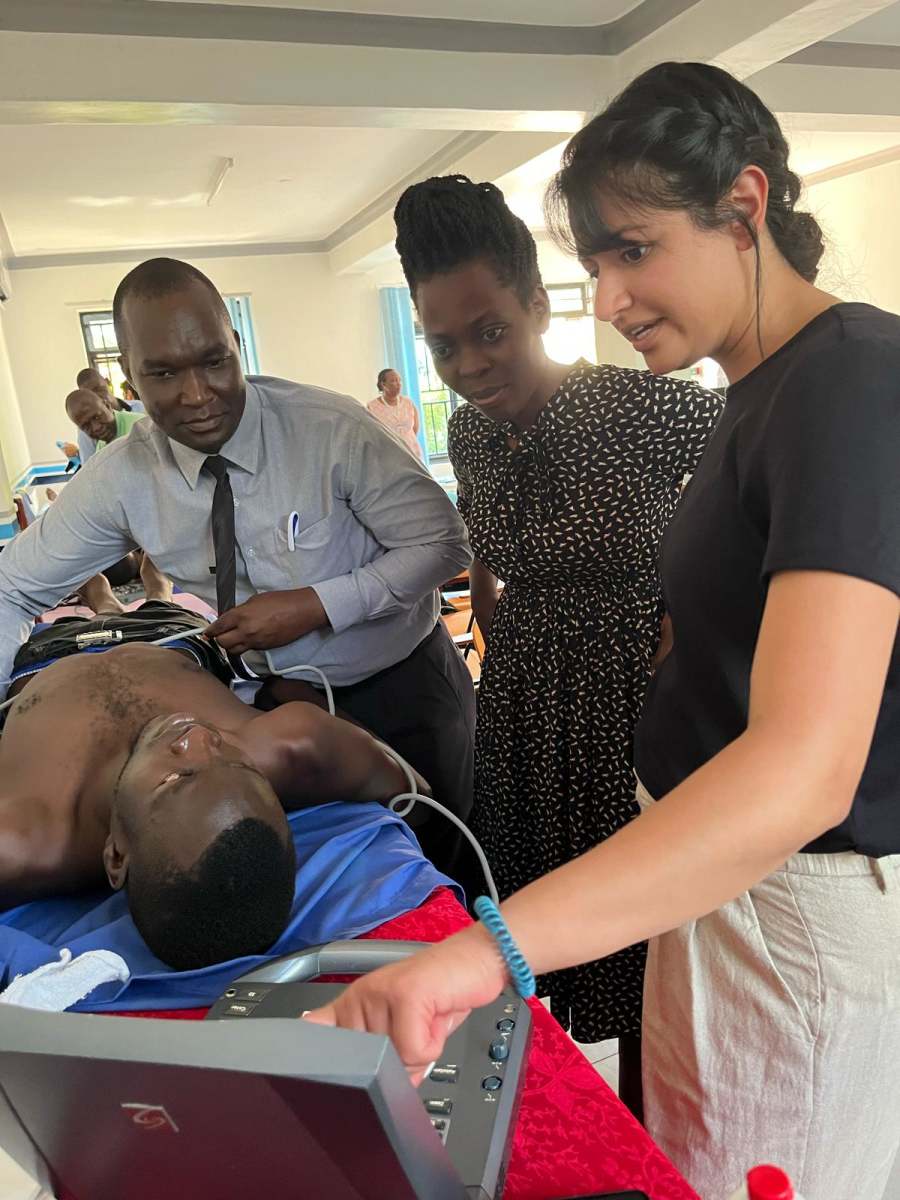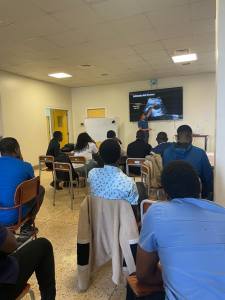Ultrasound is an essential imaging modality in low-resource countries, but many areas lack the education and training to support routine use by providers. Point-of-care ultrasound (POCUS) is used at the bedside by the clinician to change clinical practice and improve diagnostic certainty. We will be traveling to Uganda in February 2024 to teach two POCUS workshops for Ugandan physicians.
POCUS Workshops: These workshops will cover basic and advanced topics in POCUS. Our course will cover applications spanning from different abdominal ultrasounds (an exam to evaluate for extrapulmonary tuberculosis (FASH), gallbladder, renal, bowel and appendix) to ocular, cardiac, and pulmonary exams. We will also cover procedural skills (US-guided peripheral IV placement and nerve blocks) as well as a focus on ultrasound in the critically ill patient. The course will be conducted over two days and will include structured lectures, hands-on skills sessions, and pre- and post-course assessments.
Workshop sites: In Kampala, the capital of Uganda, we will be teaching emergency medicine residents at Makerere University. These residents work at Mulago Hospital which sees a high burden of road traffic accidents and other trauma. There are currently 22 emergency medicine residents who will participate in the course. In Mbale, a city located in Eastern Uganda approximately 225km from Kampala, we will be teaching a course at Mbale Regional Referral Hospital, which is affiliated with Busitema Medical School. We will have 25 participants including pediatric and internal medicine physicians.
In Kampala, Mulago Hospital is one of two public national referral hospitals and the country’s premier academic center serving the urban population of Kampala. In addition, the hospital also serves patients referred from regional centers serving a catchment population of 1.2 million people. Mulago hospital has 1500 beds and is the only 24-hour public emergency unit for trauma. ‘Casualty’ (the emergency room) is divided into Trauma and Medical units and may see over 200 patients a day, with over 6000 injured patients seen in Casualty a year and a 33% admit rate.
In Mbale, Mbale Regional Referral Hospital is one of fourteen public regional hospitals in Uganda. This hospital serves a large catchment of approximately 4.5 million people from 16 districts. The hospital has 450 beds and nearly 55,000 patient visits per year making it one of the busiest regional hospitals in Uganda.
While the target audience for both of our POCUS workshops will be the physicians working at these hospitals, including emergency medicine, pediatric and internal medicine doctors, the impact will touch the large population of patients seen at both of these public hospitals and influence provision of care in both urban and rural Uganda.
The aim of this course will be to improve knowledge on several POCUS applications to elevate clinical care. Specifically, we hope to increase knowledge about the use of POCUS and its clinical application, improve hands-on image acquisition, and broaden image interpretation skills. This initiative is a part of a larger project to advance POCUS knowledge and training at these two clinical sites. As such, remote image review and quality assurance will be continued after the course. We will also continue working with residency leadership at Makerere and local POCUS champions in Mbale to promote ongoing teaching and educational opportunities after the POCUS workshop.
The long-term goal of these educational workshops is to build clinical capacity at these sites by implementing improved diagnostic tools to then hopefully improve patient diagnoses and outcomes. The positive impact that POCUS has on clinical care has been well-documented in low-resource settings, and we hope to continue to contribute to the effort by teaching and empowering local providers to use POCUS in their daily clinical care.










Teaching POCUS to the physicians in Mbale and the EM residents in Kampala was truly an amazing and incredibly rewarding experience. Getting to talk to them and hear about their stories and what led them to medicine was inspirational. On top of that, being able to teach POCUS to these immensely bright physicians and watching their excitement as they rapidly soaked up both the technical skills and image interpretation is something that has reinvigorated my love for bedside teaching and ultrasound. I can't wait to continue our collaborative efforts in Uganda, and I am already looking forward to the next trip!!